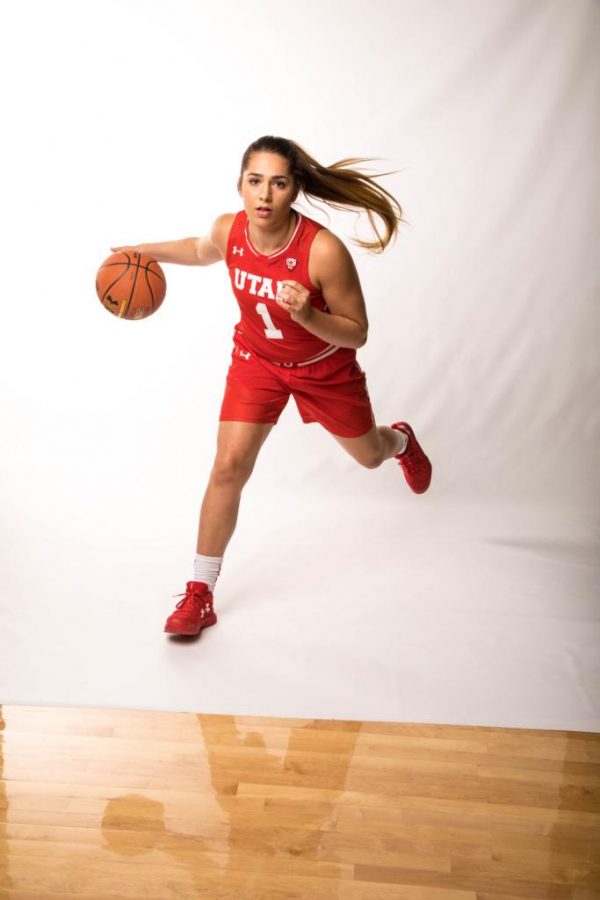College basketball was always a dream for freshman Jordan Cruz, a guard for the University of Utah women’s basketball team, but after undergoing brain surgery her freshman year of high school, there were some doubts that she would be able to play at that level. She suffered from arteriovenous malformation (AVM), which means that her arteries and veins on the left side of her brain were tangled and the proper amount of blood could not pass through.
Cruz was interested in basketball early in her childhood. Although many made fun of her for playing against the boys at recess, that didn’t stop her from playing the sport she loved. Cruz’s perseverance and strong character is what pushed her to ignore those who troubled her on the playground, as well as to overcome AVM and all the challenges that come along with it. From a young age, she experienced subtle absence seizures, but her and her family were unaware of the severity of the situation she was in. AVM causes headaches, nausea and dizziness, and for Cruz, these symptoms began to worsen during eighth grade.
“I would be walking around the hallway with my friends and they would try and talk to me, but they would think I was ignoring them,” Cruz said.
What they did not realize was that when that would happen it was because Cruz was going through a sudden and brief lapse in attention, caused by an absence seizure in the brain. It was around that year of junior high school that she began to notice something wasn’t right.
“I had a big one during a basketball game my freshman year,” Cruz said. “I told my coach to pull me out. … I kind of just sat on the bench and blanked out for a good 15 minutes, maybe longer.”
It was after Cruz, who was 15 years old at the time, went up for a layup when she suddenly lost cognition, leaving her teammates and coaches in fear. She was rushed to the hospital shortly after where she discovered that she had AVM and needed brain surgery.
After undergoing the medical procedure, it took the next couple months of rest and speech therapy for Cruz to regain her strength, motor skills and cognitive functions.
“I didn’t start giving up, but the depression hit me hard,” Cruz said. “I just thought that because of my health, I wasn’t going to be able to play anymore or it would be really hard for me to play.”
With the support of her family and the patience and confidence she had in herself, Cruz was able to finally step back on the basketball court and return to action. Although it was a rough start, she managed to work her way up to team MVP, and she even got her GPA back on track. By her senior year of high school, she was averaging 20 or more points per game.
It was not only her scoring average that Utah head coach Lynne Roberts noticed, but also her character and potential. Cruz brought her athletic and academic skills to Utah as a member of the 2017 recruiting class. Roberts says that shooting is her niche, which is something the team will need for this upcoming season.
Roberts noted that Cruz’s health is always the number one priority, but Roberts is confident she can continue to play at a high level in the Pac-12 despite what happened in the past.
“It’s like anything else that some of us have gone through and it doesn’t mean you can’t do something,” Roberts said. “It just alters how you do it.”
Cruz does not dwell on what she has had to face — instead she sets goals and looks forward to accomplishing them as a Ute.
“I want to show that if we work really hard, we can see how much we can improve,” Cruz said. “For myself, it’s just about being a freshman and learning new things, learning from the upperclassmen and just playing my game, but also having fun with the team.”
@dg_maui



Shaylen crook • Nov 9, 2017 at 12:42 pm
Dang. Cool story! Good job D!